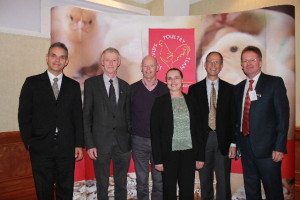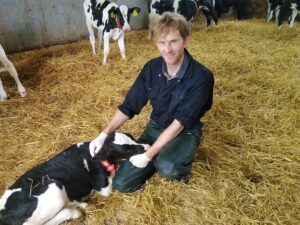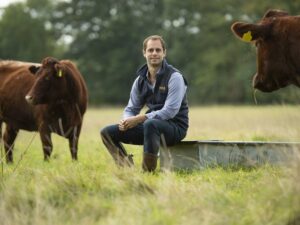 Veterinary practices need to work more closely with nutritionists and farmers to help them meet demands for antibiotic-free poultry production.
Veterinary practices need to work more closely with nutritionists and farmers to help them meet demands for antibiotic-free poultry production.
According to speakers at a recent international poultry conference, antibiotic resistance is a huge threat to human health, and livestock farmers are under increasing pressure to stop using antibiotics altogether. Although this may not have a direct impact on human antibiotic resistance, and presents an enormous challenge to animal health, welfare and productivity, it can be done.
Organised by St David’s Poultry Team, the conference brought together scientists, researchers, vets and farmers from across the globe, to explore the next step in antibiotic reduction. “As a practice we started looking at antibiotic reduction 10 years ago, and now more than 40% of medicines we use to treat infections are not antibiotics,” said partner Richard Turner.
“There will always be situations where we have to treat with antibiotics, but in this country there hasn’t been enough time spent looking at alternative approaches. A lot of vets simply aren’t trained to use complementary options.”
Working with professors from Ireland, Belgium and America, Mr Turner has helped to develop a new approach to producing poultry without routine antibiotics, based on using probiotics and acids to boost the birds’ natural immunity. “Vets spend too much time receiving dead birds for post mortems – we need to get back to monitoring flocks and adopting holistic, preventative husbandry,” he said.
Professor Colin Hill from University College Cork, Ireland, explained that chickens – and humans – were actually 90% microbes and only 10% chicken or human cells. “Everyone has a different microbiome, assembled from their parents, their environment, their food – there are over 1000 species and they play a key role in health,” he said.
Research had shown that microbes could cure a number of different diseases just as well as – or better than – antibiotics. These included porcine salmonella, bovine mastitis, clostridium difficile in humans, and listeria in mice. “By treating with the right probiotics you can kill the pathogens without damaging the microbiome,” said Prof Hill.
Professor Richard Ducatelle from Ghent University, Belgium, reckoned the shift from trying to eliminate microbes to cultivating beneficial ones was a step-change for the industry. “To me, this is the future of the veterinary profession. However, vets need to sit down and talk to nutritionists to produce the right diet.”
It was also important to cultivate beneficial bacteria throughout the supply chain, said Professor Stephen Collett from the University of Georgia, USA. “We mustn’t forget that microbes pass down from one generation to the next.” Hatcheries should therefore treat their parent birds, as well as the eggs and resulting chicks throughout their lives. “You need to seed the gut with favourable flora, feed the favourable flora, and weed out the unfavourable microbes.”
- St Davidʼs 2016 Poultry Conference – Antibiotic Reduction: The Next Step – was held on 16th March at the National Motorcycle Museum, NEC, Birmingham. For more information, call 01392 872932.
Editor’s Notes
St David’s Poultry Team Ltd is one of the UK’s largest poultry practices, run by a team of dedicated poultry vets and staff to offer the highest standard of poultry care throughout the industry.
Our Head Office near Exeter in Devon covers England and Wales, with further branches in Scotland, Ireland and Northern Ireland. We supply services to commercial egg laying companies, the broiler industry, broiler breeder companies, hatcheries and game bird enterprises.
The aim of our business is to provide a complete veterinary service with a “hands on” approach to meet all the requirements of today’s modern farming practices.
Our specialised team of veterinary surgeons are led by Directors Richard Turner, Alan Beynon and Richard Jackson in Exeter alongside Ben Crisp, with Margaret Hardy, Greg Koulianos and Carlos Bilello in Northern Ireland; Conor Sheehy and Rebecca McAllister in Limerick; Barry Thorp and Jan Dixon in Scotland; Suzy Ackerley in Shropshire; Kenny Nutting in Salisbury; Helen Errington in Cumbria and Catriona Gaudie in Northallerton, Yorkshire. The veterinary team are supported by our Field Service staff, Office team and Dispensary staff.
We are happy to help with any enquiries from the media. For more information please contact Olivia Cooper on 01392 840009 or email [email protected].




